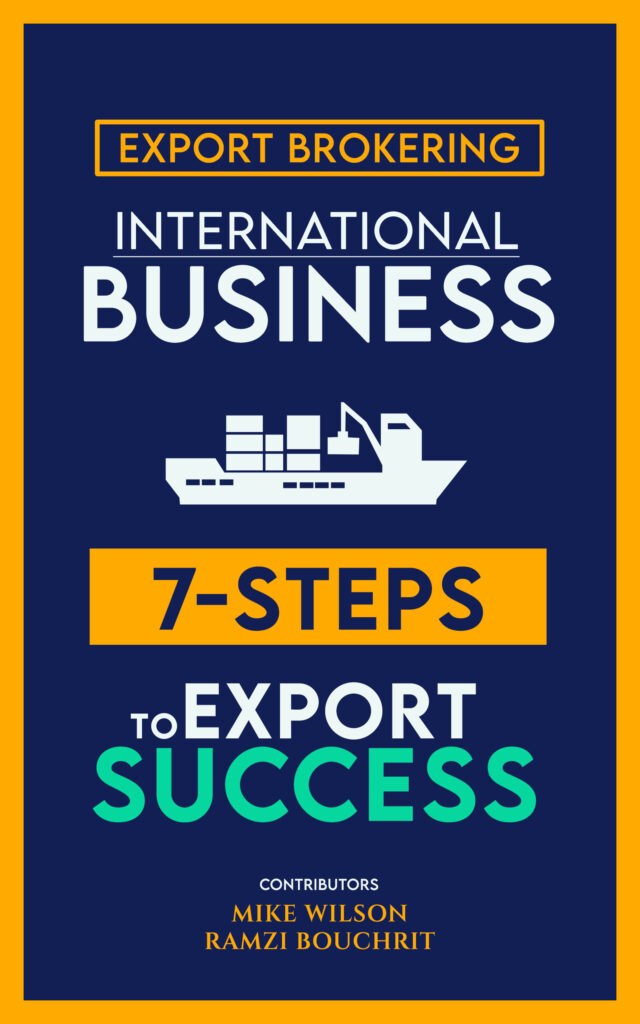Unlocking International Trade Brokerage Opportunities in Special Economic Zones? Learn how below
Introduction of unlocking International Trade Brokerage Opportunities in Special Economic Zones
In the dynamic landscape of international trade brokerage, businesses are constantly seeking new avenues to expand their reach and tap into lucrative markets. One such avenue that holds immense potential is Special Economic Zones (SEZs). These designated areas offer a range of benefits and incentives to international trade brokerage firms, creating opportunities for growth and enhanced profitability. In this article, we will explore the concept of SEZs, examine the advantages they offer for international trade brokerage, and discuss strategies for capitalizing on these opportunities.
In this step of “The Export Series” we will show you how to become a successful Import Export (International Trade) broker.

Mr. Ramzi Bouchrit (RB JV Group) has provided us with helpful information based on the different transactions he made with his business partners in the field of the International Trade aka import export. “The Export Series”.
Understanding Special Economic Zones (SEZs)
Special Economic Zones are geographically defined areas within a country that are set up to promote economic growth and attract foreign direct investment. These zones are characterized by favorable business conditions, streamlined regulations, and various incentives aimed at facilitating international trade and boosting economic activity.
Benefits of SEZs for International Trade Brokerage
SEZs provide several advantages for international trade brokerage firms looking to expand their operations:
1. Tax Incentives and Customs Benefits
One of the key attractions of SEZs is the availability of tax incentives and customs benefits. These may include exemptions or reductions in corporate taxes, import duties, and value-added taxes (VAT). Such incentives can significantly lower operational costs and enhance the competitiveness of international trade brokerage businesses.
2. Simplified Regulations and Procedures
SEZs often have simplified regulations and procedures in place to facilitate business operations. This streamlined framework reduces bureaucratic hurdles and expedites processes related to licensing, permits, customs clearance, and foreign exchange transactions. It enables international trade brokerage firms to operate with greater efficiency and agility.
3. Infrastructure and Logistics Support
SEZs typically boast state-of-the-art infrastructure and logistics facilities, including modern ports, airports, roads, and warehousing solutions. These robust infrastructure provisions enable smoother transportation and distribution of goods, fostering seamless international trade brokerage operations.
Exploring SEZs Around the World
SEZs have gained popularity worldwide, and various countries have established their own zones to attract foreign investment and stimulate economic growth. Let’s explore some of the prominent SEZs across different regions:
1. SEZs in Asia
Asia is home to several thriving SEZs, such as the Shenzhen Special Economic Zone in China, Jurong Island in Singapore, and the Colombo Port City in Sri Lanka. These zones offer strategic locations, advanced infrastructure, and a conducive business environment for international trade brokerage activities.
2. SEZs in Europe
In Europe, SEZs like the Katowice Special Economic Zone in Poland, the Kaunas Free Economic Zone in Lithuania, and the Barcelona Media Park in Spain attract international trade brokerage firms with their favorable tax regimes, skilled workforce, and connectivity to global
markets.
3. SEZs in the Americas
The Americas also host several notable SEZs, including the Colon Free Zone in Panama, the Zona Franca Bogota in Colombia, and the Port of Mariel Special Development Zone in Cuba. These zones provide a gateway to the Americas and offer various incentives for international trade brokerage ventures.
4. SEZs in Africa
In Africa, SEZs like the Coega Special Economic Zone in South Africa, the Lekki Free Trade Zone in Nigeria, and the Tatu City Special Economic Zone in Kenya are emerging as attractive destinations for international trade brokerage. These zones offer abundant natural resources, growing consumer markets, and government support for business development.
Strategies for Capitalizing on SEZ Opportunities
To make the most of SEZ opportunities, international trade brokerage businesses can adopt the following strategies:
1. Research and Analysis
Thorough research and analysis are crucial for identifying the most suitable SEZs for your business. Consider factors such as market potential, industry-specific advantages, infrastructure quality, and regulatory environment. This information will guide your decision-making and ensure that you target the most promising opportunities.
2. Networking and Partnerships
Building strong networks and partnerships within the SEZ ecosystem is vital. Attend industry events, trade fairs, and business forums to connect with potential clients, suppliers, and government officials. Collaborating with local partners can provide valuable insights and enhance your market presence in the SEZ.
3. Compliance and Risk Management
Compliance with local regulations and risk management should be a priority when operating in SEZs. Stay updated with the latest legal requirements, customs procedures, and tax obligations. Engage legal and financial experts to navigate complex compliance landscapes and mitigate potential risks.
Conclusion of unlocking International Trade Brokerage Opportunities in Special Economic Zones
Special Economic Zones offer international trade brokerage businesses a gateway to new opportunities for growth and expansion. By leveraging the benefits of SEZs, such as tax incentives, simplified regulations, and robust infrastructure, businesses can unlock their full potential in the global marketplace. However, it is essential to conduct thorough research, establish strategic partnerships, and ensure compliance with local regulations to maximize the advantages offered by SEZs. Stay ahead of the competition by capitalizing on the unique benefits provided by these economic zones.
 How To Info How to info
How To Info How to info